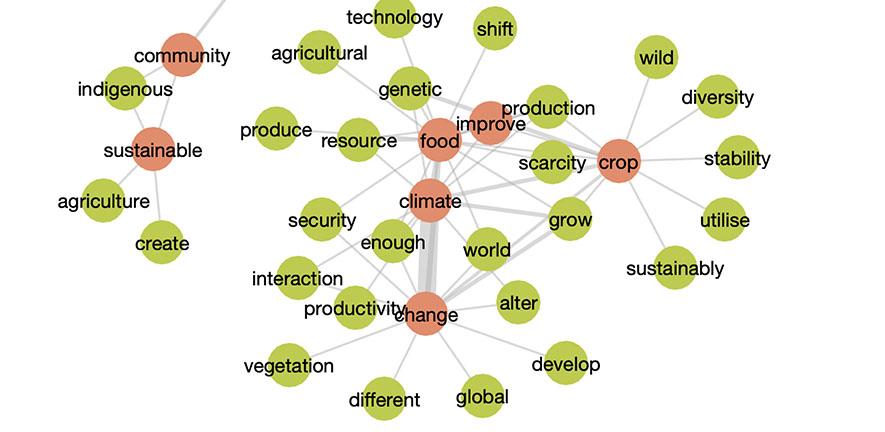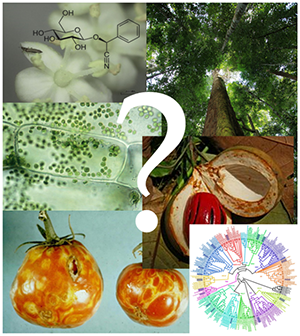
Submitted by Anonymous on Thu, 16/03/2023 - 10:11
Tip of the Apex: 100 important questions for future Plant Scientists
Updated list shows striking prominence of climate change and its effects.
The Department’s Dr Cerian Webb has contributed to a study to identify 100 important questions facing plant science research, published today in New Phyologist (here and here)
The project collected over 600 questions about plant science from a wide range of contributors around the world, ranging from botanically curious members of the public to science and industry leaders. The questions were narrowed down by a team of 20 scientists and industry experts from 15 countries, selected from 86 applicants to represent the diverse range of expertise in plant sciences.
Dr Webb, who is a member of the Epidemiology and Modelling Group in the Department, joined the European expert panel, bringing expertise in modelling a range of agricultural and forest pests and diseases. She introduced the idea of using text analytics to filter the questions and support comparison of the key themes between regional panels.
Perhaps the most striking change between the 2022 survey and the original study conducted in 2011 was a more urgent focus on climate change.
"As a mathematical epidemiologist currently working on models to support the UK response to a range of tree pests and pathogens, I was delighted to be selected as a panellist. The range of expertise on the panels enabled questions to be viewed from different perspectives stimulating many interesting conversations and highlighting the importance of inter-disciplinary collaboration.” said Dr Webb.
The panels identified eleven areas of critical global importance in plant science research - climate change, science in the community, food security, biodiversity, sustainability, plant-plant interactions, plant disease, plant-microbiome interactions, plan adaption, plant stress response and ecosystem services. The final question list highlights how climate change, biodiversity loss, and interdisciplinary and international collaborations are critical global priorities across diverse plant science research fields.
“We hope the questions will help inform policy and practice in the plant sciences in the next decade and beyond, by stimulating researchers, policymakers and practitioners to take a fresh look at the issues we’ve identified, and bringing new perspectives and solutions to the problems and opportunities we face in protecting, developing and using the world’s plant resources sustainably,” added Dr Webb.
++++++++
Read the papers:
1. Armstrong, E.M., et al. (2023). One hundred important questions facing plant science: an international perspective. New Phytologist. doi: 10.1111/nph.18771
2. Larson, E.R., et al. (2023). One hundred important questions for plant science – reflecting on a decade of plant research. New Phytologist. doi: 10.1111/nph.18663
Find out more:
Epidemiology and modelling group - https://www.plantsci.cam.ac.uk/research/groups/epidemiology-and-modelling
Dr Cerian Webb - https://www.plantsci.cam.ac.uk/directory/cerian-webb

